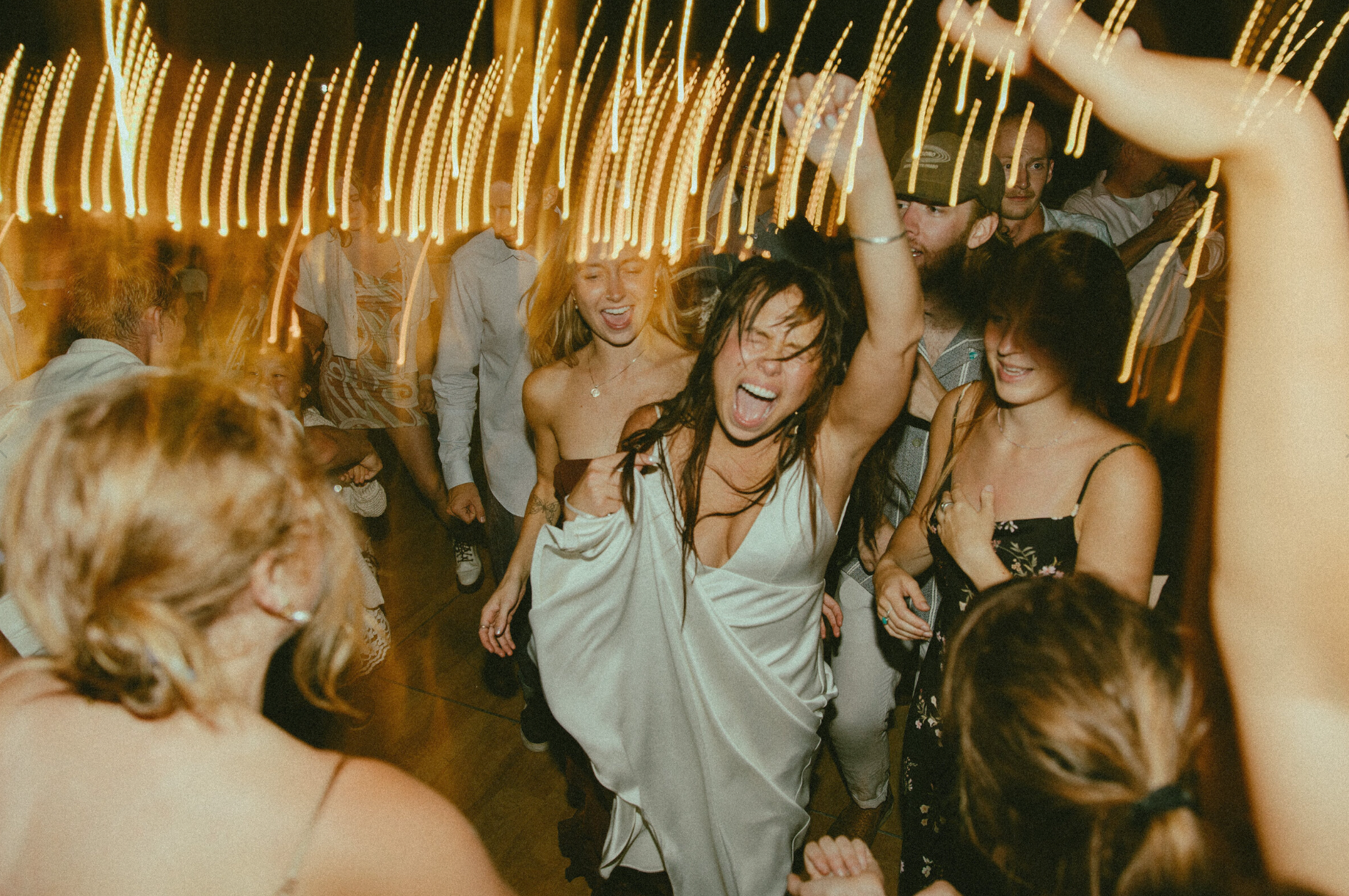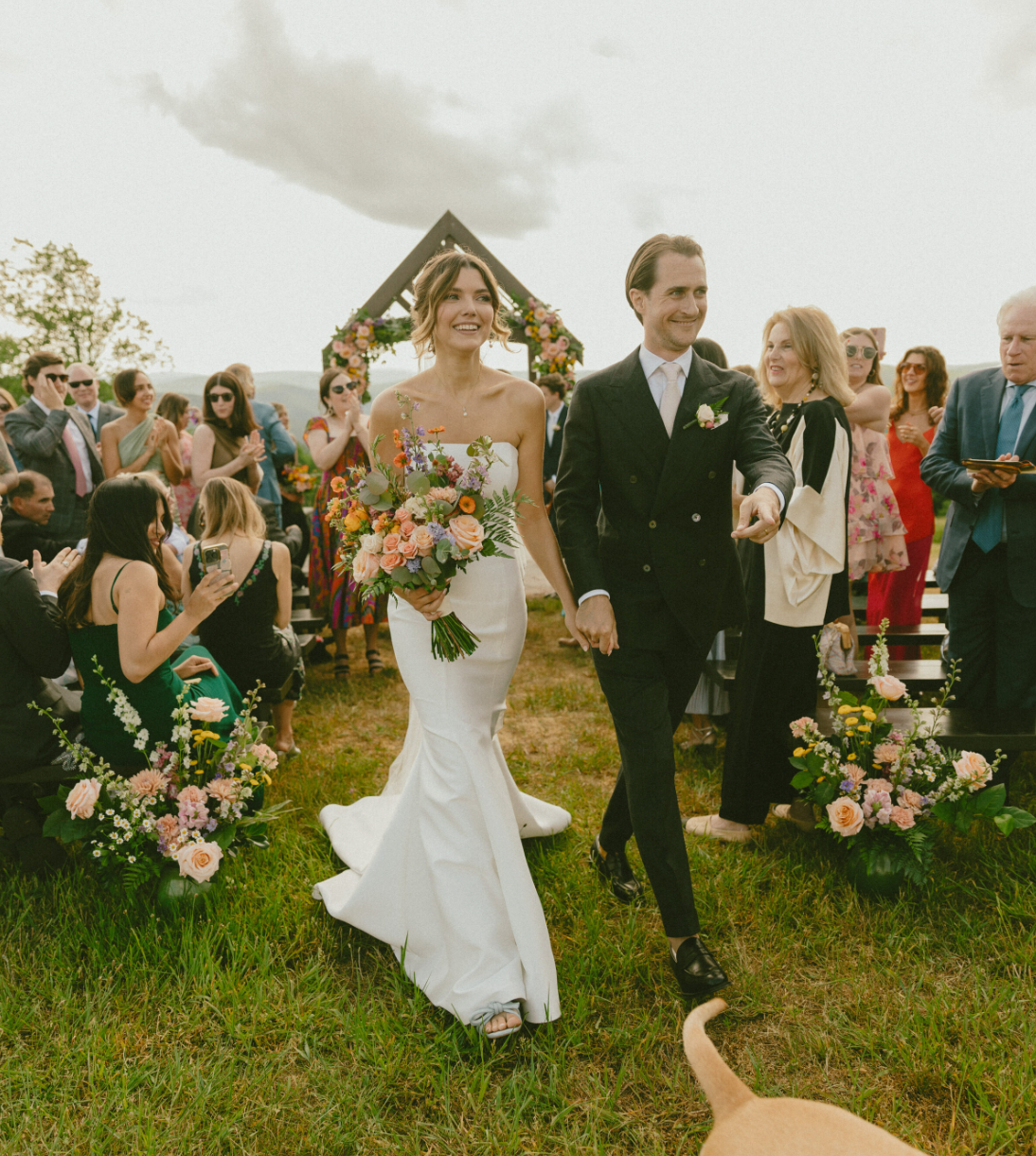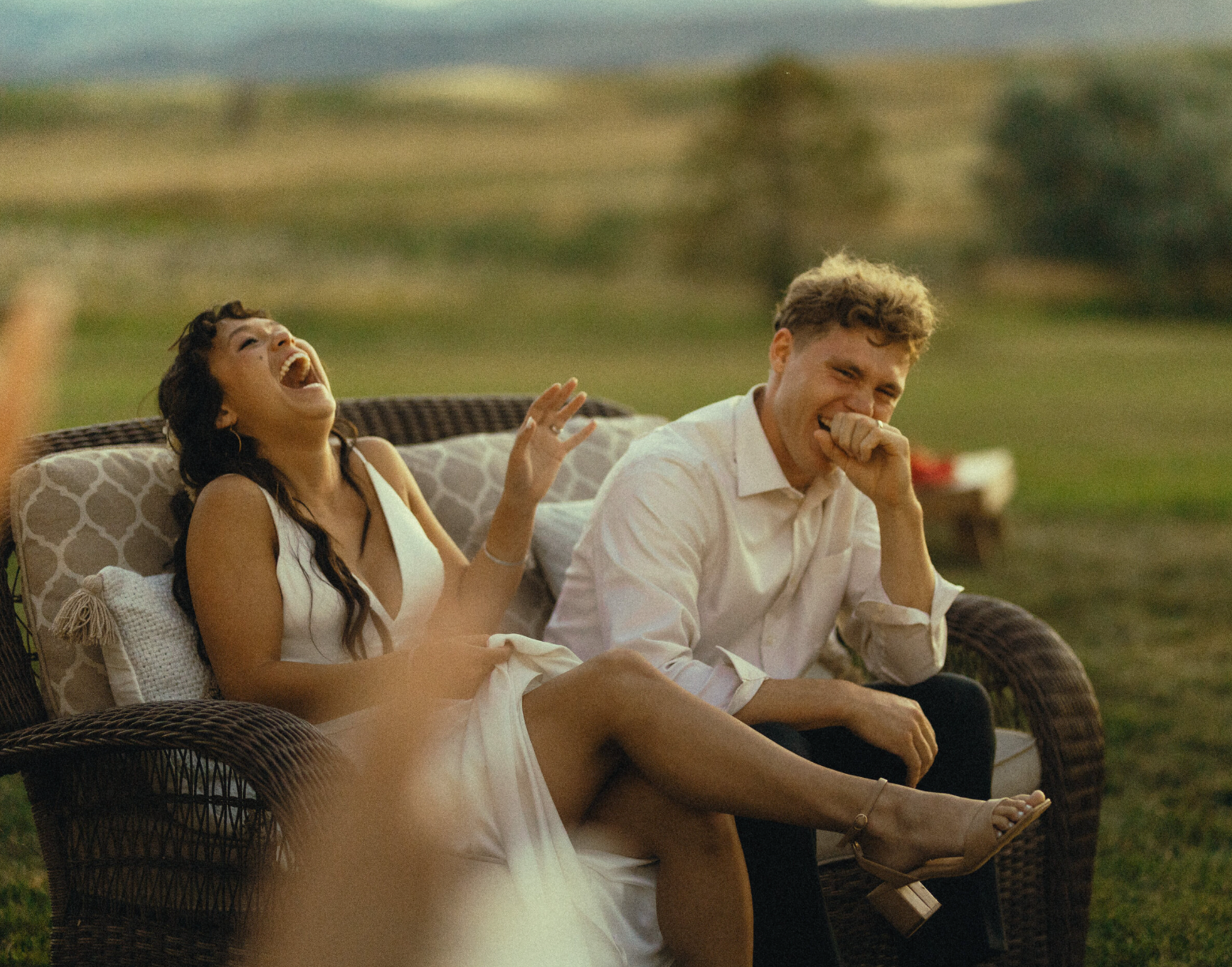Beyond My Lens: Photographer Katie Levine’s Storytelling Podcast, Supported by Narrative
Blog
By Kyle Wilson
How does a wedding photographer shift from feeling creatively stifled to running a fulfilling and sustainable business? In our latest podcast, Hannah Kutner of Wild Faith Photo shared her journey of finding her true style, digging deep with self-reflection, and learning how to thrive as a creative and as a businesswoman. If you’ve ever wondered how to build a sustainable photography career without losing your passion, Hannah’s story will inspire you.
Your style is this really wonderful, romantic look. I scrolled to see what it used to be and what it turned into; I think that's always really fun with photographers. It's really come together.
Thanks so much. Some people are so adamant about archiving all their work that doesn't match their style. I feel like the best thing is to go on someone's page and see where they've evolved from.
As you change style, do you communicate with your clients that things are shifting?
Last year was my biggest shift. I moved into documentary-style cinematic storytelling. My editing style completely changed.
I booked weddings two years prior so I fulfilled them after I had this huge shift in my work. I had a conversation with my clients and said I've leaned into this new style. I can fulfill the style you booked me for, but if you resonate more with this newer approach, I can take that one. A lot of my clients wanted a mix. They booked me because they wanted that classic pose look, but they also loved elements of the new style. So it was really just a slow transition.
What's the motivation for that style shift?
Before I was a photographer, I loved to paint and draw, and I felt that in other forms of art, I was really creative. When I went into client work in photography, I lost that creativity. It was this very systematic rinse and repeat. I felt like I was doing the same thing over and over again, and I resented creating work because it was so boring for me. I wasn't making genuine connections with my couples. I wasn't creating art that was meaningful to them. I live in a classic Colorado town with two or three prominent landscapes, and I felt like every couple wanted to shoot in the same spot. It didn't feel sentimental to them or personalized.
So that's where I came into the idea of these footage shoots that feel like movies, because I've always been obsessed with cinema. At the time, not many people were doing it yet. There were a few documentary-style photographers, and they took a hands-off approach. Seeing that gave me the permission slip. I posted a model call when I did my first documentary-style shoot, and it got the most traction I had ever gotten on my work before. I'm so grateful for that because that was what gave me the momentum to make that transition full-time.
You're doing the thing that's really speaking to you right now, and you beat the curve. You probably set the trend in some ways. What will keep you from doing what you're doing right now for the next 24 to 36 months? What's the evolution of this?
I'm in a transitional period again with my work and the direction I'm taking with booking because I don't want to be in the same situation again. I used to book weddings two years out, I'm only booking weddings like nine-ish months out now. Things can change quickly when you learn how to do your business the right way. For example, once I got a good understanding of my business and my demand, and the kind of work I was giving, I realized I hadn’t changed my prices for five years. I was charging $2,500 four years ago and still just booking that.
That's one of the big things I learned. I realized I had to do a lot of mindset work around money at this pivotal point of my career because I never really learned that. Almost exactly a year ago, Jai Long's Business Map was the first investment I made in my photography business outside of buying the necessary equipment.
I never really understood the monetary side of things and what people in different ranges look like. I didn't know what other people were charging. But I learned when you're working with people who value you more, they respect you more and ask less of you. You're not the photographer and the wedding planner, videographer, and social media content creator; they don’t expect you to do 12 hours of coverage in six hours somehow.

Did you pick up most of this financial space education from the Jai Long course?
Yes, and it felt really big at the time. I eyed it for months. At the time, it felt like I was buying a freaking sports car. I was broke when I did it, and what I got from it was life-changing.
I didn't really value my own work, and I didn't realize that to get other people to want to invest in me, I had to believe that my own work was worth the investment, and I had to value my time.
This is where it comes full circle: when I moved up in pricing, my clients respected my time more, and they respected their own time more. They didn't want to have three consultation calls before they booked and be on the phone for hours and have a long list of questions and want to see 52 galleries.
I'm in photography Facebook groups and saw this photographer posted that she got a response from wedding clients who made an inquiry. She sent the pricing guide and they said, sorry, your work is too cheap.
It's such a strange financial psychological thing. I ask clients for their estimated budget right in my contact form. It's just a different way to filter people through. As soon as I mentioned that my pricing was kind of high, I started getting people who were way higher than my number. That $12,000 client would have never reached out if I said I started at $4,000.
For a while, I had imposter syndrome. I couldn't ever afford a $12,000 wedding; who am I shooting one? But if you think about it, I used to be a server, and it was very high-end, $80 per dish, wines being sold every night. The most incredible servers we had there—they're not eating there. There's no correlation. No one ever said in order to work that job, you need to be that person. Thinking about that helped me eliminate some of that imposter syndrome. Why would what my wedding looks like have anything to do with the work that I'm creating for someone else's wedding? There isn't a correlation there.
So Nathan Chansky, on his podcast with India Earl, said, where do you have to be priced to show up as the best photographer, to show up as the photographer your clients deserve? And I think that's what changed everything for me.
What does my pricing look like when I'm not shooting triple-header weddings? Because I'm not showing up for that third wedding in a row the same way I showed up for that first wedding, you know? What does my pricing look like just to show up for one individual wedding?
You're obviously booking the right clients and not booking too many. What else are you proactively doing to not burn out?
I temporarily put a hold on my 2025 bookings because I was looking at my calendar and it was already filling up. It happened so much faster than I would have ever expected it to. I decided to temporarily hold off on booking elopements because I noticed that is what was draining my last bit of energy this year.
About four months ago, I was having a mental breakdown, thinking I was the only one not booking for 2025. Then, flash forward two or three months, I'm looking at my calendar, and I'm already flying to seven different states. I'm hosting retreats. What if I want to go on vacation? What if I want to do something?
We end up doing these things to ourselves and we don't realize it because we're so stressed out about work. It's so common in photography because we come from being starving artists who can't pay the bills. We're trying to leave our full-time job and make any money we can with photography, so I'll book whatever I need to. Then we book too much and we scale back. And then we're like, I'm not booking enough, and we book more.

I think every photographer relates. I call it the two to three-month freakout. I'm standing in the shower in November and I'm thinking about how nobody's emailing me and I'm freaking out. And then things start coming through, or I get desperation bookings with the wrong wedding at the wrong price, and I book it just because. That's part of the reason I have exited the industry as a full-time gig because I don't like how I feel during that period. How do you console yourself when you say that a wedding is the perfect gig, but you've got to say no to balance out to be rested? How do you assure yourself this is the right decision for the bigger picture?
Having this really clear picture in my mind of what that has looked like and the havoc it created, and remembering the aftermath and all the work that comes with that. Also, every time I have left that time free, something else has come that's more in alignment.
Sometimes, we have to say no, and that's okay because what comes around goes around. I really wanted to take a wedding, and it broke my heart to tell the couple no. My photographer friend, who I'd say is the closest to my style, I asked her if she had the availability and almost handed them over. I thought I was the perfect fit for them. And my friend who took them, they're like best buds now. They're a better fit. If I had shown up to their wedding half asleep and probably resentful, that would have done me worse in the long term.
We have to not be selfish and remember that this is their wedding day. Of course, we have to pay bills, and of course, we want to do it, but this is their wedding day. They get one, and they truly deserve a photographer who can show up for them completely, fully, and wholeheartedly. It is our job to put the client first in that situation. So I think that has just helped me make the decision as hard as it might be sometimes.
Miles Witt-Boyer speaks at length about honoring your clients. I think it's a really specific sentence. So whoever you referred was obviously the perfect person, and now that bride and groom have a special experience because you chose to.
A key part is self-reflection. When we get busy, things move so fast. I've felt this blanket of stress laying over me knowing that it's September and summer is basically over. I blinked, and it was gone. When I was reflecting after shooting a few weddings in July, I felt this tinge of guilt. I could have shown up better if I wasn't stretched so thin.
I went from being walked all over to then setting hard boundaries. Sometimes I didn't go above and beyond for clients because I had nothing left in me.
After reflecting, I took a step back. I cannot just rinse and repeat what I did this year, next year. I made the decision to shift into education, and I'm grateful and privileged to have that opportunity while I navigate what a workload looks like where I can show up as the best photographer and my best self. I'm choosing to shift into education and put a hold on booking weddings and letting go of elopements so I can figure out what that genuinely sustainable workload looks like for me.

It's really easy to just fall into that rhythm year after year. So, what is your problem? Is that what you're focusing on now for 2025?
That has been my problem. When you're a photographer, wedding seasons here, you'll blink, it's over. I spend three months after the wedding season sending out galleries and doing damage control. And then I have friends I have to see, and I should finally paint the walls of my house. Then, next thing you know, it's wedding season again.
This past year of going full time is the fastest year of my life, and I have not spent much time with myself this year—myself that is not a photographer, myself that is just a human without a job. I've been learning about slow living and intentional living. In parts of France, it's almost offensive to ask someone what their job is before you have any other conversation with them. And I think we identify so much with our job, in America as a whole and as photographers, because you are your brand, you're the photographer, that's it. Realizing that my whole life this past year has been my business, how can I return to that separation?
Get started with 1000 free credits.
You're more than Hannah the photographer. There's a lot more to you as a person. In this business, in particular, you can fall into that trap of that's your identity, and everyone you meet only knows you as that.
And it's almost all you talk about. Even catching up with friends, I noticed everything was about my business.
So I decided to launch my course at the end of September, in the midst of my busy season, even though it would be a lot of work right now. I want to take that step back and navigate what I want next year to look like when busy season is over. I want to go into the new year knowing what I can take on and how I want to navigate 2025.
That's a tremendously healthy thing to figure out early in your full-time career. I wish I had figured that out a lot earlier than I did. And that's just going to lead you to so much more success.
It has been so insightful to see a career fast track and then turn into something totally different that is really beneficial to Hannah, not Hannah and her business, but to Hannah. And that's really valuable as a creative.
Thank you so much. It's so important. At the end of the day, we need to remember that we're creating sustainable businesses. We're not just looking at this busy three-month season; you're looking at your life, and it needs to be sustainable.
Hannah Kutner is a photographer and educator specializing in photography rooted in storytelling and cinematography. Her goal is to create art that feels like YOU, which means getting to know each couple and their story, their why, their hearts, and creating authentically with that. Based in Colorado, she hosts retreats for photographers across the U.S. to teach the art of cinematic techniques. Find her on the web at wildfaithphoto.co and on Instagram (@wildfaithphoto).
This interview has been edited and condensed. Check out “The Photographer’s Problem: A Narrative Podcast,” streaming now on YouTube or Spotify, for the full, unedited interview and more inspiring stories from the evolving world of photography.